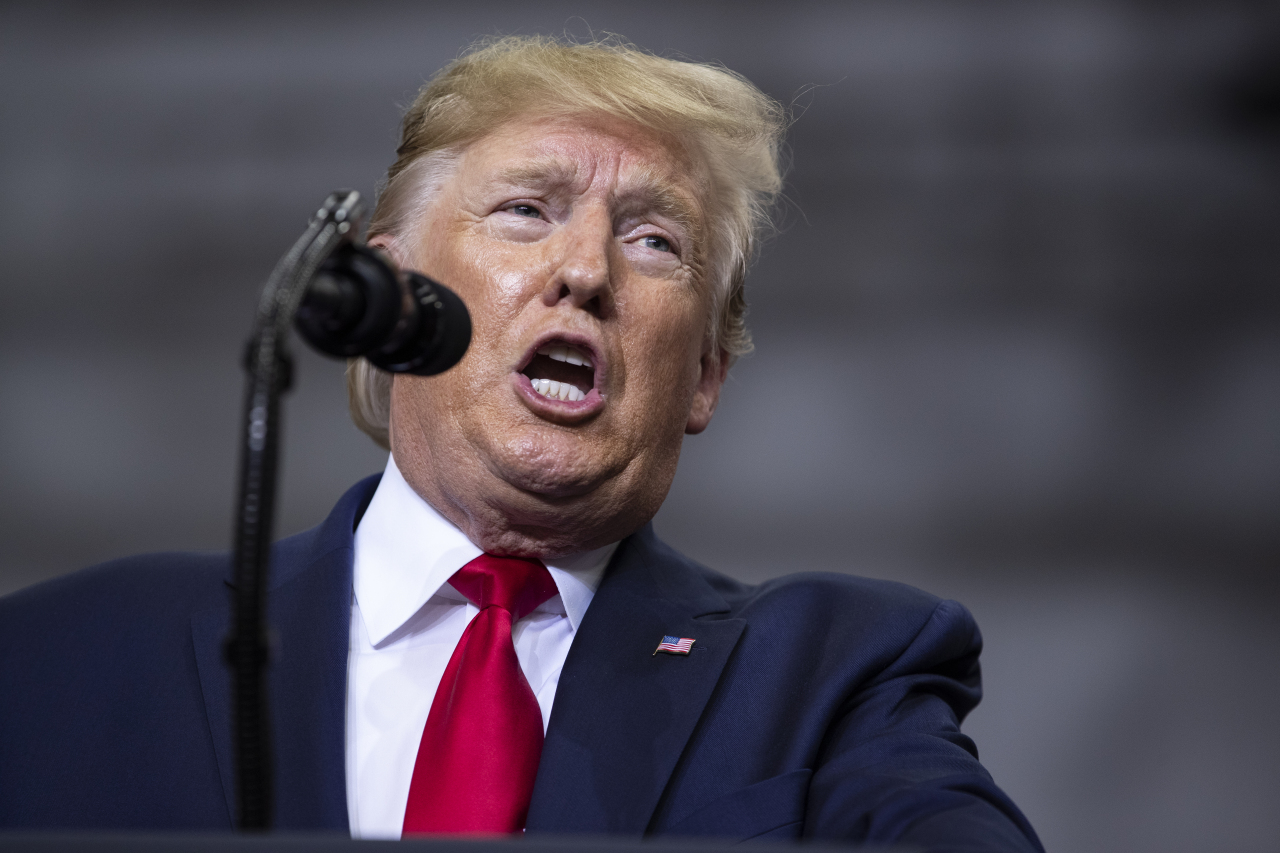November 27, 2019
The president has made his overtures to Pyongyang a major part of his foreign policy.
US President Donald Trump estimated that as many as 100 million people could have been killed had the United States gone to war with North Korea under the previous administration of President Barack Obama, according to a new book based on interviews with the president.
Trump’s comment came during a January 2019 meeting at the White House with Doug Wead, a New York Times bestselling author and former adviser to two American presidents, whose book, “Inside Trump’s White House: The Real Story of His Presidency,” was published Tuesday.
During that conversation, Wead wrote, Trump reiterated his belief that Obama would have gone to war with the North had he stayed in office.
“And I also think that thirty to one hundred million people could have been killed,” Wead quoted the president as saying.
 |
South Korea has 51.2 million people and North Korea has a population of 25 million.
Trump then expressed disbelief at experts’ predictions that 100,000-200,000 people would die, a number he said was the equivalent of the population of a South Korean village.
“Well, as you know, Seoul, the capital city, is right by the so-called border,” he continued, according to Wead. “And that is a tough border by the way. An impenetrable border. And Seoul has a population of thirty million people. Kim has ten thousand guns, artillery, they call them cannons. He doesn’t even need a nuclear weapon to create one of the greatest calamities in history.”
The population of Seoul is just under 10 million.
Trump showed Wead some of the letters Kim had written to him.
According to Wead, the North Korean leader made clear that he seeks to formally end the 1950-53 Korean War, which ended in an armistice, not a peace treaty.
In one letter, Kim wrote: “I firmly believe that the strong will, sincere efforts and unique approach of myself and your Excellency, Mr. President, aimed at opening up a new future between the DPRK and the US will surely come to fruition.”
DPRK stands for North Korea’s official name, the Democratic People’s Republic of Korea.
As the president had lunch with Wead, he lamented the media’s coverage of his historic first summit with Kim in Singapore in June 2018, saying the act of meeting was portrayed as giving up too much.
“And in fact, nothing we did was irreversible,” Trump was quoted as saying. “Canceling the war games saved us millions of dollars and we can start them up anytime we want. So what had we given up, what? We put vicious sanctions on them. The sanctions are still on.”
Trump was referring to the South Korea-US military exercises he suspended in the wake of his Singapore summit. The decision was widely criticized as a concession to the Kim regime, which views the drills as an invasion rehearsal.
Wead said Trump also balked at the scope of the US defense commitment to South Korea.
“Do not forget we have forty thousand soldiers in South Korea all year around,” he said. Around 28,500 American troops are currently stationed in the South.
“Do you know how much we spend defending South Korea? Four and half billion dollars a year. Figure that one out?” he added.
Trump has reportedly demanded that South Korea raise its contribution to shared defense costs to $5 billion next year, a five-fold increase from this year.
Trump also complained to Wead that the people who treated the US the worst were its allies.
“And you’ve heard the story with South Korea with the missiles system, with the THAAD anti-missile system?” he was quoted as saying.
The US Terminal High Altitude Area Defense system was placed in South Korea in 2017 to deter North Korean missile provocations.
“We give so much,” Trump said, according to Wead. “We give so much. We get nothing.”

